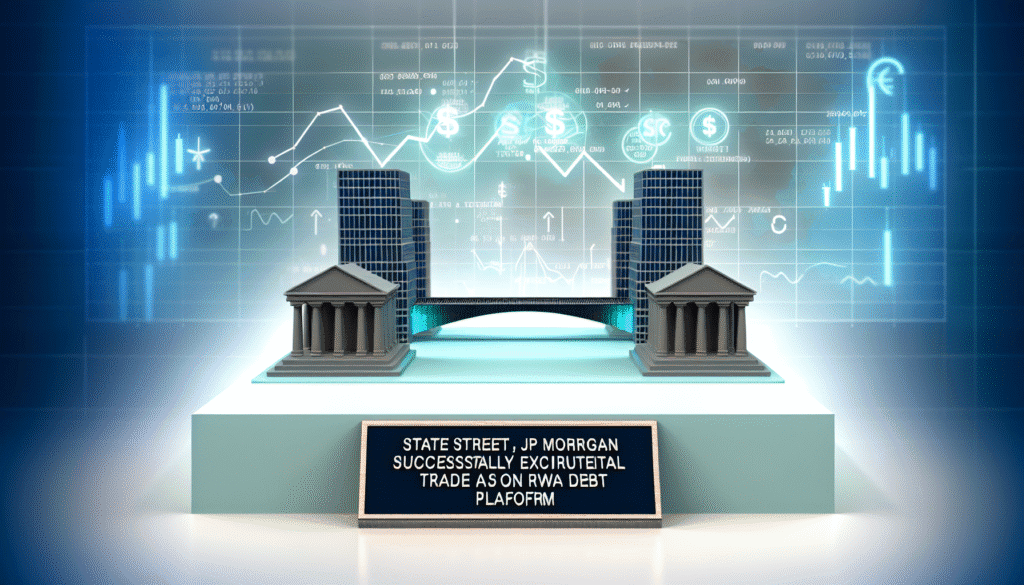State Street, an asset manager and custodian bank catering to institutional clients, has become the first third-party custodian on JPMorgan’s tokenized debt platform, enabling it to safeguard blockchain-based debt securities for investors.
JPMorgan’s Digital Debt Service platform facilitates trading and settling tokenized debt instruments for institutional clients, with these securities representing government or corporate bonds issued on a blockchain.
The asset manager engaged in its inaugural transaction on the platform by acquiring $100 million in tokenized commercial debt from the Oversea-Chinese Banking Corporation (OCBC), one of the oldest banks in Southeast Asia, as noted in Thursday’s announcement.
Founded in 1792, State Street is one of the “big three” asset managers, alongside BlackRock and Vanguard, managing over $49 trillion in assets under custody and an additional $5.1 trillion in assets under management.
The asset manager’s expansion into custody services for tokenized real-world assets (RWAs) illustrates the growth of this emerging sector and marks a significant moment as established financial institutions engage with the digital economy.
Related: Citigroup, JP Morgan, Goldman Sachs spearhead TradFi’s blockchain initiatives: Ripple
JP Morgan invests in tokenized RWAs as sector experiences triple-digit growth
In 2020, JP Morgan launched Onyx, a range of blockchain-based services and technologies, rebranding it to Kinexys, its RWA tokenization platform, in 2024.
Chainlink, an oracle provider, partnered with Kinexys in May to enhance payment infrastructure for settling tokenized RWA transactions between financial institutions.
In June, Kinexys, in collaboration with Chainlink and RWA platform Ondo Finance, successfully executed a cross-chain transfer of Ondo’s OUSG tokenized Short-Term US Treasurys Fund, moving the digital asset from Ondo’s layer-1 testnet to the Kinexys permissioned chain.
Chainlink founder Sergey Nazarov stated to Cointelegraph that tokenizing assets onchain enhances capital velocity in the economy and supports the entire crypto ecosystem by securing value onchain.
“We require more high-quality assets onchain and seamless payment solutions that existing institutions can easily utilize,” said Nazarov.
The tokenized RWA market has surged by approximately 65% since early 2025, reaching a market capitalization exceeding $26.4 billion, excluding stablecoins, according to RWA.xyz.
Magazine: Will Robinhood’s tokenized stocks REALLY reshape the financial landscape? Pros and cons

